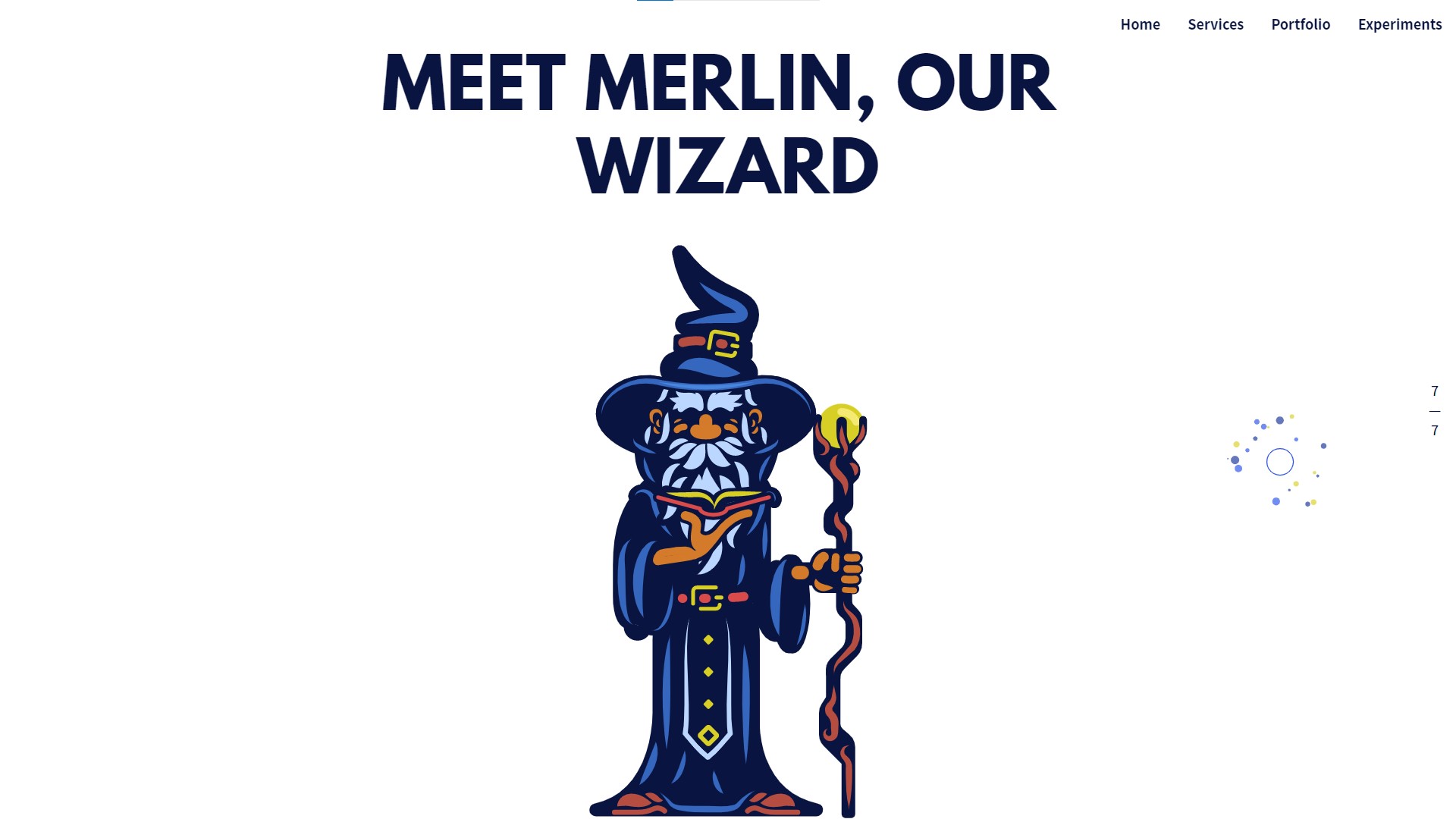When you think about historical wizards, your mind might immediately conjure images of ancient robes, mystical artifacts, and arcane incantations. But these legendary figures are far more than just folklore or fantasy—they're a fascinating glimpse into humanity's enduring fascination with the supernatural. From ancient civilizations to modern interpretations, historical wizards have left an indelible mark on culture, science, and spirituality. Let's dive into this magical world and explore why these enigmatic figures continue to captivate us today.
Throughout history, wizards have been both revered and feared, often acting as intermediaries between the mundane and the divine. They've been portrayed as wise sages, cunning tricksters, and even dangerous adversaries. But beyond the myths, there's a rich tapestry of real-life individuals who inspired these legendary archetypes. Whether it's the alchemists of medieval Europe or the shamans of ancient tribes, the legacy of historical wizards is as diverse as it is profound.
So buckle up, because this journey through the ages will take you from dusty scrolls to enchanted forests, revealing the truth behind the magic. By the end of this article, you'll have a deeper understanding of how historical wizards shaped the world—and maybe even inspire you to embrace your inner wizard.
Read also:Monday Inspirational Blessings Kickstart Your Week With Positivity
Table of Contents
- Biography of Historical Wizards
- The Origins of Historical Wizards
- Famous Historical Wizards You Should Know
- Myth vs Reality: Debunking Wizard Lore
- Tools of the Trade: Wizards and Their Magical Implements
- How Historical Wizards Influenced Modern Science
- The Spiritual Connection: Wizards and Religion
- Modern Interpretations of Historical Wizards
- The Cultural Significance of Wizards Throughout History
- Conclusion: The Timeless Appeal of Wizards
Biography of Historical Wizards
Data and Facts About Historical Wizards
Before we dive into the stories and legends, let's take a moment to explore the biographical details of some of history's most famous wizards. Below is a table summarizing key information about these mystical figures:
| Name | Era | Region | Notable Achievements |
|---|---|---|---|
| Merlin | 6th Century AD | Britain | Advisor to King Arthur; creator of the Round Table |
| Hermes Trismegistus | 1st Century AD | Egypt | Founder of Hermeticism; attributed to numerous texts on alchemy and mysticism |
| John Dee | 16th Century AD | England | Mathematician, astrologer, and advisor to Queen Elizabeth I |
| Paracelsus | 16th Century AD | Switzerland | Founder of toxicology; pioneer in the use of chemicals in medicine |
These individuals represent just a fraction of the many historical wizards who have influenced human history. Their contributions spanned across various fields, from philosophy to medicine, proving that magic and science aren't always as far apart as we might think.
The Origins of Historical Wizards
So where did it all begin? The concept of wizards can be traced back thousands of years, with early societies developing their own interpretations of these mystical beings. In ancient Egypt, for example, priests and scribes were often seen as wizards, using their knowledge of hieroglyphics and astronomy to predict events and communicate with the gods. Meanwhile, in Mesopotamia, the magi were revered for their ability to interpret omens and perform rituals.
But it wasn't just about magic; historical wizards were often highly educated individuals who combined spiritual practices with scientific inquiry. This blending of disciplines allowed them to push the boundaries of what was possible, laying the groundwork for many modern advancements.
Key Characteristics of Early Wizards
- Deep knowledge of nature and the cosmos
- Ability to perform rituals and ceremonies
- Proficiency in languages and writing systems
- Connection to the spiritual or divine realm
As civilizations evolved, so too did the role of the wizard. What started as a purely religious or ceremonial position gradually expanded to include elements of science, philosophy, and even politics. This transformation reflects humanity's ongoing quest to understand the mysteries of the universe.
Famous Historical Wizards You Should Know
When it comes to historical wizards, some names stand out above the rest. These individuals weren't just legendary figures—they were real people who made significant contributions to their respective fields. Here's a closer look at a few of them:
Read also:Katherine Renee Kane Height Unveiling The Stars True Stature And More
Merlin: The Timeless Sage
Merlin is perhaps the most famous wizard in Western mythology, known for his role as advisor to King Arthur. But did you know that Merlin was based on a real historical figure? According to some scholars, Merlin was inspired by a Welsh bard named Myrddin Wyllt, who lived during the 6th century AD. This connection highlights the blurred lines between history and legend when it comes to wizards.
Hermes Trismegistus: The Father of Hermeticism
Hermes Trismegistus, often referred to simply as Hermes, is a legendary figure associated with ancient Egyptian and Greek traditions. While his existence as a single individual is debated, the texts attributed to him, known as the Corpus Hermeticum, have had a profound impact on Western esotericism. These writings explore topics such as astrology, alchemy, and the nature of the divine.
John Dee: The Renaissance Man
No discussion of historical wizards would be complete without mentioning John Dee, a 16th-century English mathematician, astrologer, and advisor to Queen Elizabeth I. Dee's work in mathematics and navigation helped shape the Age of Exploration, while his interest in the occult led him to develop new methods of divination and communication with angels.
Myth vs Reality: Debunking Wizard Lore
While the stories of historical wizards are undoubtedly captivating, it's important to separate fact from fiction. Many of the legends surrounding these figures have been exaggerated or distorted over time, leading to misconceptions about their true nature. For example, Merlin is often depicted as a powerful sorcerer capable of bending reality to his will, but the historical basis for this image is much more grounded in reality.
Common Misconceptions About Wizards
- Wizards were all-powerful beings capable of performing miracles
- They relied solely on magic, without any scientific knowledge
- Wizards were universally feared and persecuted
In reality, many historical wizards were highly respected members of society, valued for their wisdom and expertise. While they may have practiced forms of magic or divination, these practices were often intertwined with more practical disciplines like medicine and astronomy.
Tools of the Trade: Wizards and Their Magical Implements
Every good wizard needs the right tools to perform their craft, and historical wizards were no exception. From magical staves to enchanted books, these implements played a crucial role in the rituals and ceremonies performed by wizards throughout history.
Some Iconic Wizard Tools
- The Staff: A symbol of authority and power, often used in rituals
- The Grimoire: A book of spells and incantations, containing secret knowledge
- The Crystal Ball: Used for divination and scrying, allowing wizards to glimpse the future
- The Pentacle: A protective talisman, often inscribed with magical symbols
These tools weren't just props—they were essential components of a wizard's practice, imbued with both symbolic and practical significance. By understanding the tools of the trade, we gain a deeper appreciation for the complexities of historical wizardry.
How Historical Wizards Influenced Modern Science
Contrary to popular belief, historical wizards weren't just mystical figures—they were also pioneers in the field of science. Many of the practices associated with wizardry, such as alchemy and astrology, laid the groundwork for modern chemistry and astronomy. In fact, some of the most famous scientists in history, like Isaac Newton, were deeply interested in alchemical studies.
Scientific Contributions of Historical Wizards
- Alchemy: The precursor to modern chemistry, focusing on the transformation of substances
- Astrology: The study of celestial bodies and their influence on human affairs
- Medicine: The development of herbal remedies and other forms of treatment
By embracing both the mystical and the practical, historical wizards helped bridge the gap between the known and the unknown, paving the way for future generations of scientists and scholars.
The Spiritual Connection: Wizards and Religion
Throughout history, wizards have often been closely tied to religious practices and beliefs. In many cultures, they served as intermediaries between the earthly and the divine, using their knowledge and skills to communicate with gods and spirits. This spiritual connection has played a significant role in shaping the role of wizards in society.
Religious Roles of Wizards
- Performing rituals and ceremonies
- Interpreting omens and signs
- Providing guidance and counsel
While the relationship between wizards and religion has evolved over time, the spiritual dimension of wizardry remains an integral part of its allure. It's this connection to something greater than themselves that makes historical wizards such fascinating figures.
Modern Interpretations of Historical Wizards
In today's world, the legacy of historical wizards lives on in literature, film, and popular culture. From J.R.R. Tolkien's Gandalf to J.K. Rowling's Dumbledore, modern interpretations of wizards continue to captivate audiences around the globe. But what makes these characters so enduring?
Why We Love Wizards
- They represent the pursuit of knowledge and wisdom
- They embody the struggle between good and evil
- They offer a sense of wonder and possibility
While the settings and stories may change, the core elements of wizardry remain the same: a deep connection to the mysteries of the universe and a commitment to using that knowledge for the greater good.
The Cultural Significance of Wizards Throughout History
Historical wizards have left an indelible mark on human culture, influencing everything from art to science. Their stories remind us of the power of imagination and the importance of seeking knowledge in all its forms. Whether through myth or reality, wizards continue to inspire and challenge us to explore the unknown.
Key Takeaways
- Wizards have played a vital role in shaping human history and culture
- Their contributions span across various fields, from science to spirituality
- Modern interpretations of wizards reflect our ongoing fascination with the mystical and the mysterious
Conclusion: The Timeless Appeal of Wizards
As we've seen, historical wizards are far more than just characters in myths and legends—they're a testament to humanity's enduring quest for knowledge and understanding. From ancient shamans to Renaissance scholars, these individuals have left an indelible mark on the world, inspiring countless generations to embrace their inner wizard.
So the next time you pick up a book or watch a movie featuring a wizard, take a moment to appreciate the rich history behind these fascinating figures. Who knows? You might just find yourself inspired to embark on your own journey of discovery.
And hey, don't forget to leave a comment or share this article with your friends. After all, spreading the magic is what wizards do best!


